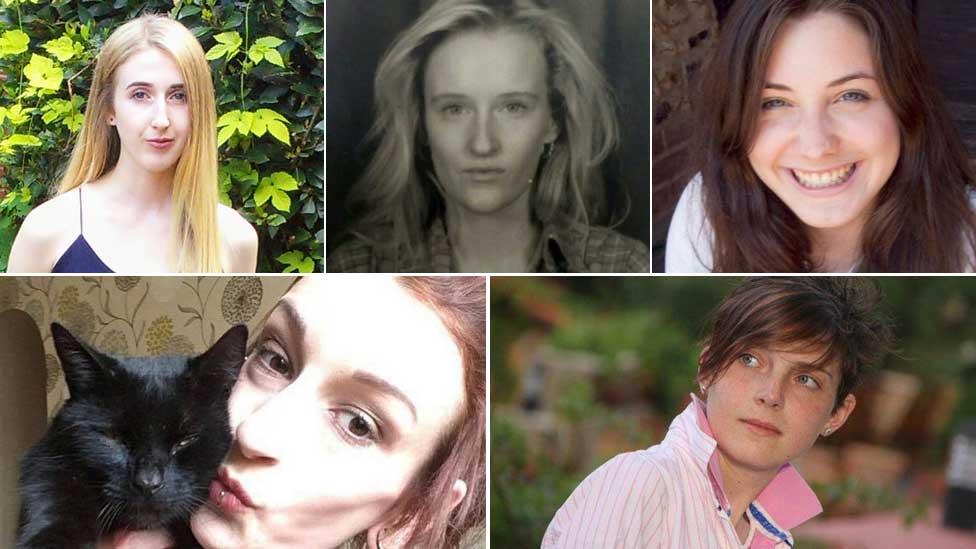Eating disorders: Boris Johnson and Matt Hancock urged to act
- Published

Clockwise, from top left: Maddy Wallace, Amanda Bowles, Averil Hart, Emma Brown and Maria Jakes
Campaigners and MPs have written to the prime minister and health secretary, urging action on issues raised at the inquests of five women with anorexia.
The letter asks the government to end the "postcode lottery" for treatment, external and improve communication and training.
It says: "In 2020, no-one should be dying from an eating disorder in the UK, but the reality is this is still happening each day."
The Department of Health and Social Care said it was expanding services.

Hope Virgo is leading the call for action
Downing Street has also been contacted for comment.
A week ago, it was announced that Cambridgeshire and Peterborough assistant coroner Sean Horstead had written a Prevention of Future Deaths report following inquests into the deaths of Averil Hart, Emma Brown, Maria Jakes, Amanda Bowles and Madeline Wallace.
He said a gap in formally commissioned medical monitoring, as seen in Miss Hart's case, continued, and "gives rise to risk of future deaths".
Earlier this week, Cambridge MP Daniel Zeichner wrote to health secretary Matt Hancock asking what "the government plan to learn from this terrible situation".
Mental health campaigner Hope Virgo, who is leading the call for action, said: "After the coroner's verdict I was appalled. One reason these women died was a lack of treatment in place for them... this is still happening every single day, people are dying in 2020... it shouldn't be happening."
She and co-signatories, including clinicians and MPs, are asking the government to sit down with experts and service users to build a plan of action to improve access to treatment.
"This illness has the potential to ruin lives depending on factors that sometimes act as barriers to treatment - from age to gender, and even your location - but it doesn't have to," said Miss Virgo.
"You can recover but we need a foundation and firm commitment from government to improve treatment, break stigmas and educate clinicians and the public to make sure no-one else dies."
Agnes Ayton, chair of the Faculty of Eating Disorders at the Royal College of Psychiatrists, said: "The truth is that people should not die of anorexia or any eating disorders. We cannot do this alone."
A spokesman for the Department of Health and Social Care said: "We are committed to ensuring those who need it can access support, and last week announced an expansion of eating disorder services from the NHS, including scaling up early intervention services to support young people."

Find BBC News: East of England on Facebook, Instagram and Twitter. If you have a story suggestion email eastofenglandnews@bbc.co.uk
- Published10 November 2020

- Published6 November 2020

- Published10 November 2020
- Published23 March 2020

- Published30 January 2020
